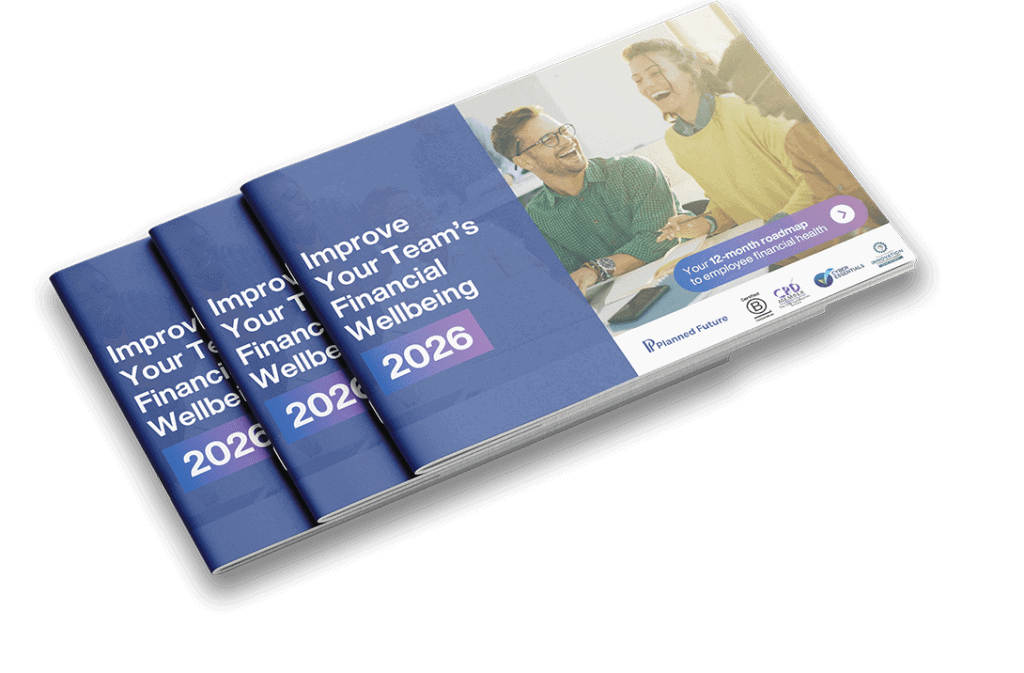Choosing the Right Support to Boost Your Employees’ Financial Wellbeing
Financial stress is a top concern for many employees – this blog offers ways you can provide better employee wellbeing support in the workplace.
Recent insights from Willis Towers Watson (WTW) back this up, with 59% of employees highlighting financial wellbeing as their number one worry.
Employee money worries don’t just affect personal life but also often spill over into the workplace, affecting productivity, motivation, and overall job satisfaction.
Employers are recognising the importance of stepping up to support their teams’ financial health. But with so many options out there, how do you choose the right kind of support for your workforce?
The key is to understand the unique needs of your employees and tailor your approach accordingly.
Here’s a breakdown of different financial wellbeing supports, who they might be best suited for, and why.

1. Webinars & Workshops
Who Benefits?
Webinars and workshops are ideal for companies with a diverse workforce that includes employees at various stages of financial literacy.
They’re particularly useful for organisations with a large number of employees who respond to live interaction and the chance to ask questions in real-time.
Why They Work?
These sessions can cover a wide range of topics, from basic budgeting to investments and retirement planning, making them versatile enough to meet the needs of employees with different financial goals. The interactive format allows employees to engage directly with experts, making the learning experience more personal and impactful.
2. E-Learning Platforms
Who Benefits?
Online learning platforms are perfect for employees who prefer to learn at their own pace or have unpredictable schedules e.g. shift workers. It is also important to consider whether your workforce are tech-savvy and would be comfortable navigating online courses independently.
Why They Work?
These platforms offer flexibility and can be tailored to different levels of financial literacy, from beginners to more experienced individuals. Employees can pick and choose the courses that are most relevant to them, which ensures they’re getting information that’s directly applicable to their situation.
3. The Money Guide Service (One-to-One Financial Coaching)
Who Benefits?
The Money Guide Service offers employees the chance to discuss their specific financial queries and goals with a financial expert such as managing debt, saving for a big purchase, or planning for retirement.
It’s suited to a wide range of organisations with employees ranging from those who are less financially literate to those who have greater wealth or higher pay and more sophisticated needs.
Why It Works?
This tailored approach ensures that employees receive guidance that’s directly relevant to their individual circumstances. It can be especially helpful for those who feel overwhelmed by their financial situation and need a clear, step-by-step plan to move forward.
4. Financial Wellbeing Apps
Who Benefits?
Financial education apps are ideal for employees who are looking to build their financial knowledge and gain better control over their personal finances. They’re especially beneficial for those who want access to educational resources, practical guidance, and expert advice without needing to attend in-person workshops or meetings.
Why They Work?
With a range of guides and videos on various personal finance topics, employees can learn at their own pace, deepening their understanding of subjects like saving, investing, and debt management. Plus, the ability to ask questions to a financial adviser/money guide at any time of day adds a personalised touch, ensuring that employees can get the help they need, whenever they need it.
5. Promoting A Positive Culture Around Financial Wellbeing
Who Benefits?
Open communication is essential for any organisation looking to increase their employee wellbeing support.
Why It Works?
Encouraging employees to talk about their financial wellbeing can help reduce stigma and create a more inclusive, supportive workplace. Regularly sharing financial tips and resources can keep financial wellness top of mind and encourage employees to take advantage of the supports available to them.
Choosing the right financial wellbeing support for your employees isn’t a one-size-fits-all solution. By understanding the unique needs and preferences of your workforce, you can tailor your approach to provide the most effective support possible. Whether it’s through education, one to one guidance, or creating a culture of open communication, the right tools and resources can help your employees achieve greater financial stability—and in turn, lead to a more motivated, productive, and loyal workforce.

